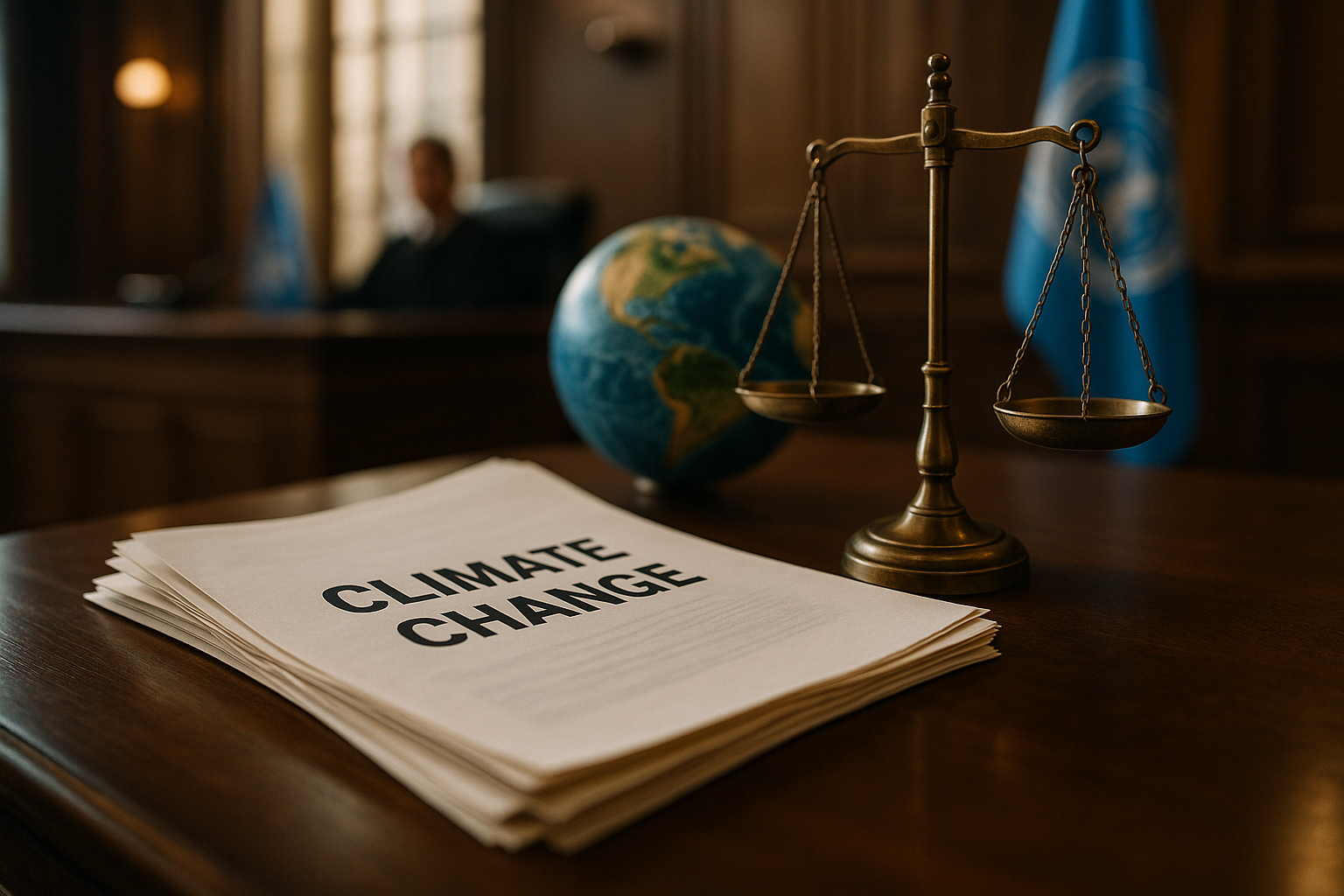"The Growing Influence of Climate Change on International Law"
Introduction: This article delves into the expanding role of international law in addressing climate change, from its historical roots to its increasing relevance in contemporary legal discourse. In the aftermath of the industrial revolution, nations started producing and consuming fossil fuels on an unprecedented scale, leading to an increase in greenhouse gas emissions and, consequently, global warming. Environmental concerns eventually found a place in international legal discourse, and the 1972 United Nations Conference on the Human Environment in Stockholm marked the beginning of environmental law as a distinct branch of international law. Since then, various international treaties and agreements have been adopted to tackle environmental issues, and climate change has emerged as a central concern.

The Increasing Relevance of Climate Change in Legal Discussions
The past decade has witnessed a surge in climate change litigation. Citizens, non-governmental organizations, and even entire countries are increasingly resorting to courts to hold states and corporations accountable for their contribution to climate change. Cases like the Urgenda case in the Netherlands and the Juliana v. United States case reflect how climate change is reshaping legal principles and practices.
The Paris Agreement: A Milestone in Climate Change Law
The 2015 Paris Agreement, an international treaty under the United Nations Framework Convention on Climate Change, is a significant development in climate change law. The Agreement requires all its parties to put forward their best efforts to limit global warming to well below 2 degrees Celsius above pre-industrial levels. It also establishes a financial mechanism to support developing countries in their climate actions.
Implications and Impact on Society
Climate change law has far-reaching implications for society. It can influence policies in sectors like energy, transport, and agriculture, thereby affecting people’s lives in numerous ways. For instance, transitioning to renewable energy sources can lead to job creation in new industries while reducing air pollution and its associated health risks.
Concluding Thoughts
Climate change is no longer just an environmental issue; it has become a legal issue. As countries strive to meet their commitments under international treaties, laws and policies are likely to evolve significantly. This will inevitably lead to novel legal challenges and opportunities. Understanding the dynamics of climate change law can enable citizens to contribute more effectively to the climate discourse and take informed decisions in their personal and professional lives.
From a legal perspective, climate change offers a compelling case study of how international law can adapt to new global challenges. As the world grapples with the climate crisis, international law and its institutions will play a crucial role in shaping our collective response.




